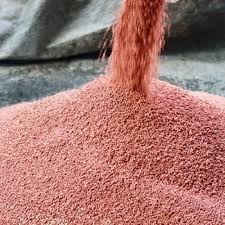
Th8 . 13, 2024 14:36 Back to list
Discover the Top Organic Vegetable Fertilizers for Thriving Gardens and Healthier Plants
The Best Organic Vegetable Fertilizer A Guide to Sustainable Gardening
In recent years, the prominence of organic gardening has surged as more individuals and communities recognize the importance of sustainable farming practices. Central to successful organic gardening is the use of effective fertilizers. Organic vegetable fertilizers enrich the soil with nutrients, improve soil structure, and promote plant health without the adverse effects associated with synthetic products. This article explores the best organic vegetable fertilizers available, their benefits, and how to choose the right one for your garden.
What is Organic Vegetable Fertilizer?
Organic vegetable fertilizers are natural substances derived from plant, animal, or mineral sources. Unlike chemical fertilizers, they release nutrients slowly and improve the long-term health and fertility of the soil. Common types of organic fertilizers include compost, well-rotted manure, seaweed, bone meal, and blood meal. Each of these provides a variety of essential nutrients necessary for the growth of vegetables.
The Benefits of Organic Vegetable Fertilizers
1. Nutrient-Rich Organic fertilizers offer a broader range of nutrients compared to chemical options. They typically contain macronutrients like nitrogen, phosphorus, and potassium, along with essential micronutrients that plants need for proper growth.
2. Improves Soil Health They enhance soil structure, promoting aeration and drainage. This is crucial for root development and reducing the risk of diseases.
3. Sustainable and Eco-Friendly Organic fertilizers are biodegradable and contribute to the sustainability of agricultural practices. They do not persist in the environment, nor do they contaminate water sources.
4. Supports Microbial Activity These fertilizers encourage the growth of beneficial microorganisms in the soil, which play a key role in decomposing organic matter and releasing nutrients to plants.
5. Long-Lasting Due to their slow-release nature, organic fertilizers provide a steady supply of nutrients over time, reducing the frequency with which they need to be applied.
best the best organic vegetable fertilizer

Types of Organic Vegetable Fertilizers
1. Compost One of the most versatile and widely used organic fertilizers, compost consists of decomposed organic matter. It improves soil fertility and provides a range of nutrients. Creating your own compost from kitchen scraps and garden waste is an excellent eco-friendly option.
2. Manure Animal manure (from cows, chickens, or horses) is rich in nutrients. However, it should be well-rotted before application to eliminate pathogens and weed seeds.
3. Bone Meal This is a great source of phosphorus, which is essential for root development and flowering. It is particularly beneficial when planting bulbs or root vegetables.
4. Kelp Meal Derived from seaweed, kelp meal is rich in trace minerals and encourages healthy growth and resistance to disease. It can be applied in both granular and liquid forms.
5. Blood Meal High in nitrogen, blood meal is an excellent choice for leafy green vegetables like spinach and lettuce.
How to Choose the Right Organic Fertilizer
When selecting an organic fertilizer, consider the specific nutrient needs of your vegetables. Conducting a soil test can help you identify nutrient deficiencies and pH levels. Organic fertilizers often have an N-P-K (Nitrogen-Phosphorus-Potassium) ratio on their packaging, which indicates their nutrient content.
Furthermore, think about the method of application that suits your gardening style. Some fertilizers can be mixed into the soil, while others can be applied as a top dressing or as a liquid feed.
In conclusion, the best organic vegetable fertilizer is one that aligns with the needs of your plants and the characteristics of your soil. By incorporating organic fertilizers into your gardening routine, you contribute to healthier plants, improved soil quality, and a more sustainable ecosystem. As we continue to embrace organic gardening, the selection and application of organic fertilizers will play a crucial role in achieving flourishing vegetable gardens.
-
Organic Manure Compost: GPT-4 Turbo Enhanced Fertilizer
NewsAug.03,2025
-
10-10-10 Organic Fertilizer - Balanced NPK Formula
NewsAug.02,2025
-
Premium Organic Manure Compost for Eco Gardens
NewsAug.01,2025
-
Organic 10-10-10 Fertilizer | Balanced Plant Nutrients
NewsJul.31,2025
-
Premium Amino Acid Fertilizer | Rapid Plant Growth Booster
NewsJul.31,2025
-
10 10 10 Fertilizer Organic—Balanced NPK for All Plants
NewsJul.30,2025
